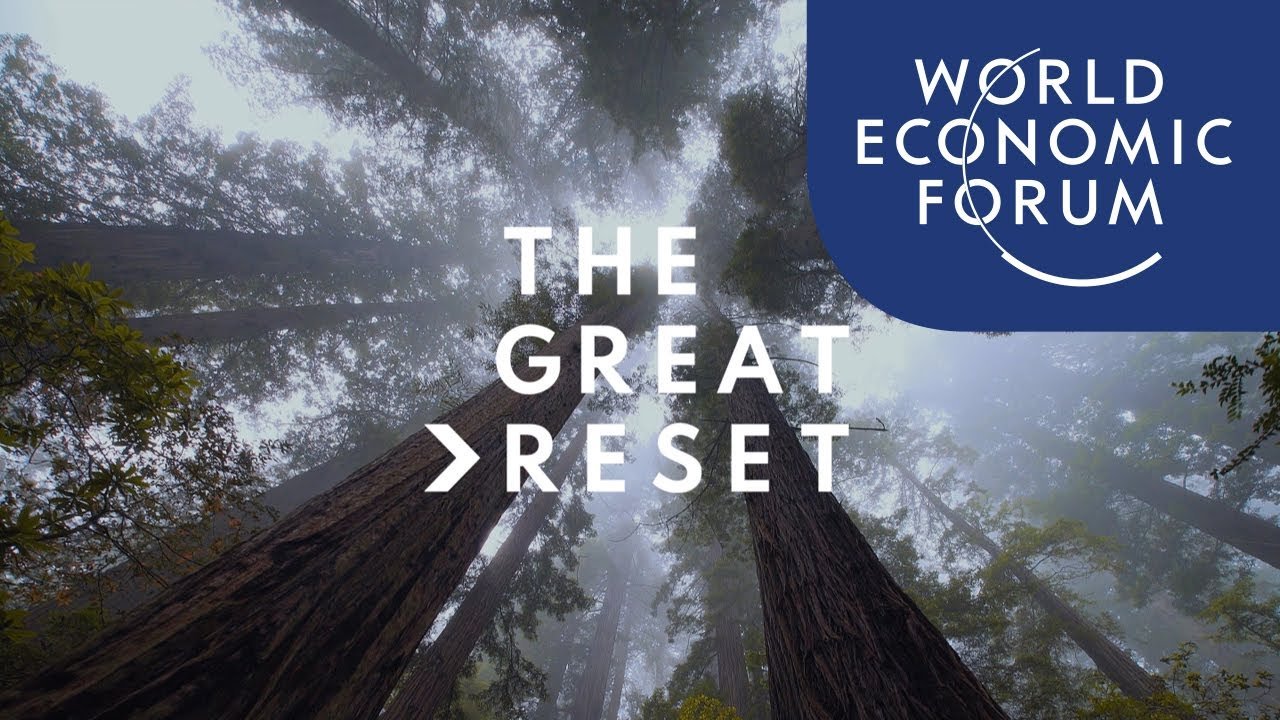Klaus switches gears on page 36 and talks about the Economic Reset and the economics of Covid-19.
He tells us that our current economy differs vastly from the past, so much so that is it “unrecognizable”.(36)
He gives multiple reasons, like the airplane, “which result in more than a billion of us crossing a border each year”(36).
He also tells us we are:
“encroaching on nature and the habitats of wildlife.”(36)
Since the beginning of time, I might add, but do you notice how he is telling us we are wrong?
Encroach means to basically obtain wrongfully.
Are we really doing that, or are we using the resources at our disposal?
Anyway, he does note that we have lessons to learn from the past and how they dealt with pandemics.
He tells us that :
“the global economic catastrophe that we are now confronting is the deepest recorded since 1945. In terms of its sheer speed, it is unparalleled in history”(36).
Given the coordinated nature of the response, I would agree with him.

He tells us that in 1665:
“over the space of 18 months, the last bubonic plague had eradicated a quarter of London’s population.”(37)
Covid isn’t even close to this, but he tells us that some of those characteristics are “hauntingly similar… All trades being stopped, employment ceased… “(37)
When 1 in 4 of your population is dying, that means probably another few percent of your population are sick, which would obviously mean a complete breakdown in everything.
Yet with Covid, we basically acted like this was going to happen.
Most of the work stoppages were because of workers not considered essential, that means restaurants and other small businesses were shut down.
but to imply, or suggest even on a small level that a bubonic plague and Covid, are the similar is ludicrous, and to suggest that we can use those lessons to combat Covid, I also think is equally ridiculous.
But, Klaus is on to something, when he says “a clash exists between interests of public health and those of economics.”(37)
I think it’s further than that, economics are important, sure, but that is just one aspect of humanity.
The clash isn’t between public health and economics, it’s between public health and the freedom to go about your business with minimal interference from anyone.
I find when an argument is framed in such as way, invariably someone somewhere will say something like:

“you’re risking my health for a latte?”
Who wouldn’t be shocked when someone frames a public health debate like that?
It’s clear who has the morally superior argument, but when framed between public health and individual rights, it becomes a little more nebulous.
The problem, as I see it, very simply is there is no understanding why individual freedoms need to be curtailed.
There were public health officials telling us Covid-19 is bad, and politicians saying basically two things: lockdowns, and all of you need to be vaccinated (more on that later), but there was never, as far as I know, any kind of discourse between the public and public health officials why all of this was necessary.
As was stated previously, no population was provided a pandemic plan as far as I know, that anyone could read.
Why is this important?
First, it’s a plan, and in that plan all the steps necessary to get us out of a public health emergency are in it, as well as your role as a citizen.
I am willing to bet if these processes were followed, push back would have been less, panic would have been less, and the arbitrary nature of the rules would have been less.
If you watch the video, it is very clear that the politicians didn’t defer to anyone in emergency management, but we are getting ahead of ourselves.
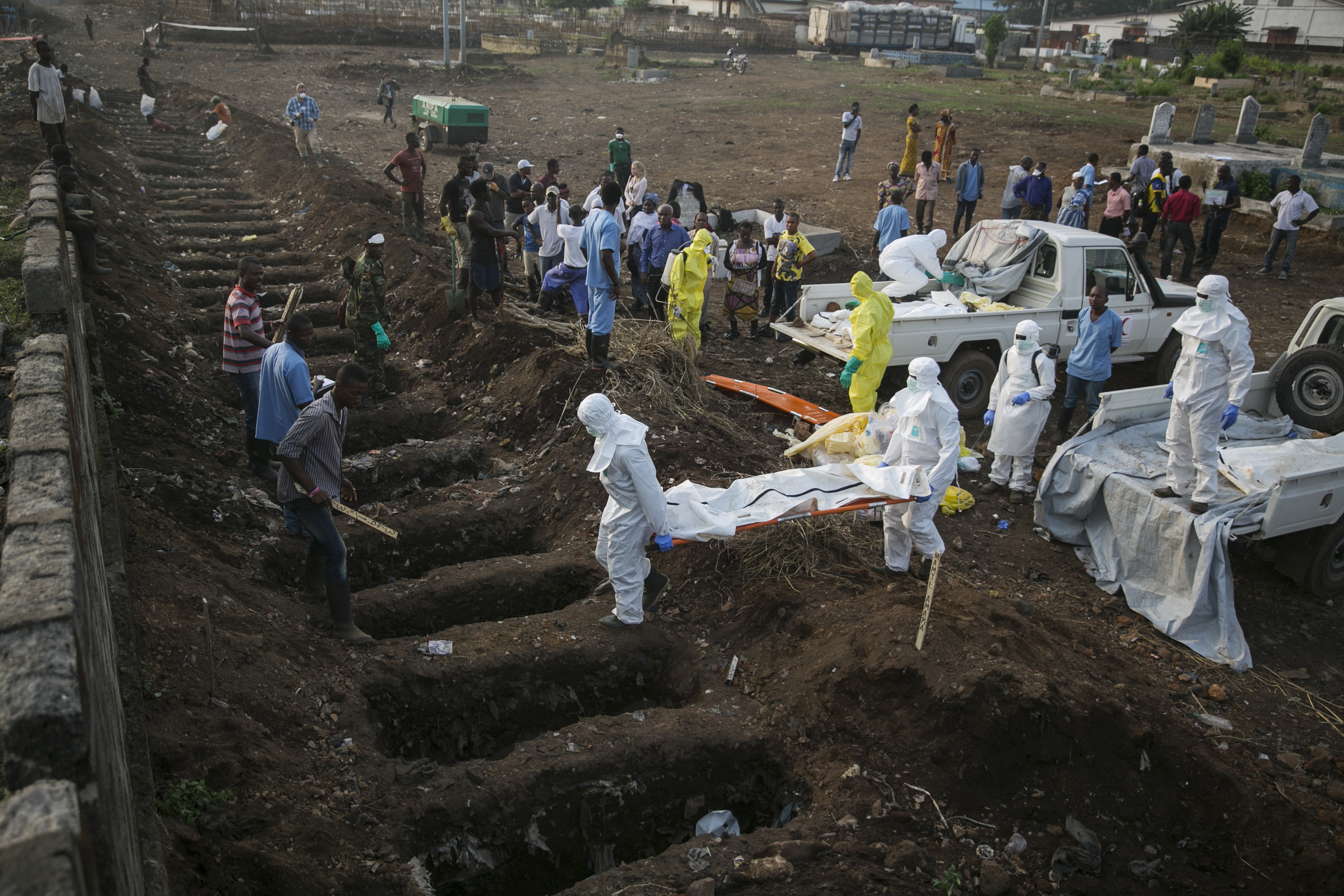
Curiously, Klaus tells us that:
“epidemics have been the great resetter of a country’s economy and social fabric” (38).
I would add, only those with huge population deaths, but Klaus seems to think Covid-19 will do this as well.
He tells us that there can be
“serious macro-economic after-effects can persist for as long as 40 years …”(38).
I think everyone in the world over has seen the effects of Covid, namely employment.
Work from home is basically a requirement now, and how many businesses are trying to hire people, only having to increase wages in order to get people at least to apply?
As a general rule, “similar but less extreme examples of other pandemics point to the same conclusion: labour gains in power to the detriment of capital.”(39)
Klaus tells us since Covid-19 is so new, we don’t know how much or little it will affect us in the long run but,:
“an overwhelming consensus has emerged within the global scientific community that Jin Qi (one of China’s leading scientists) had it right when he said in April 2020 ‘This is very likely to be an epidemic that co-exists with humans for a very long time, becomes seasonal and sustained within human bodies.’”(40).
Think about this for a minute.
We are in the beginning stages of a coronavirus pandemic that,
“has no parallel in modern history”(11)
According to Klaus, remember he said that on page 11, yet as early as April 2020 approximately 3 months after a pandemic declaration, Time reported that there is
“ a growing consensus around the world that the pathogen will likely return in waves like the flu.”
The other tid-bit of interesting information from that article is that
“A consensus is forming among top researchers and governments worldwide that the virus is unlikely to be eliminated, despite costly lockdowns that have brought much of the global economy to a halt. Some public health experts are calling for the virus to be allowed to spread in a controlled way through younger populations like India’s, while countries like Sweden have opted out of strict lockdowns.” Even Fauci said in March 2020, “the disease caused by the virus could become a seasonal ailment. He cited as evidence cases now showing up in countries across the southern hemisphere as they enter their winter seasons.”
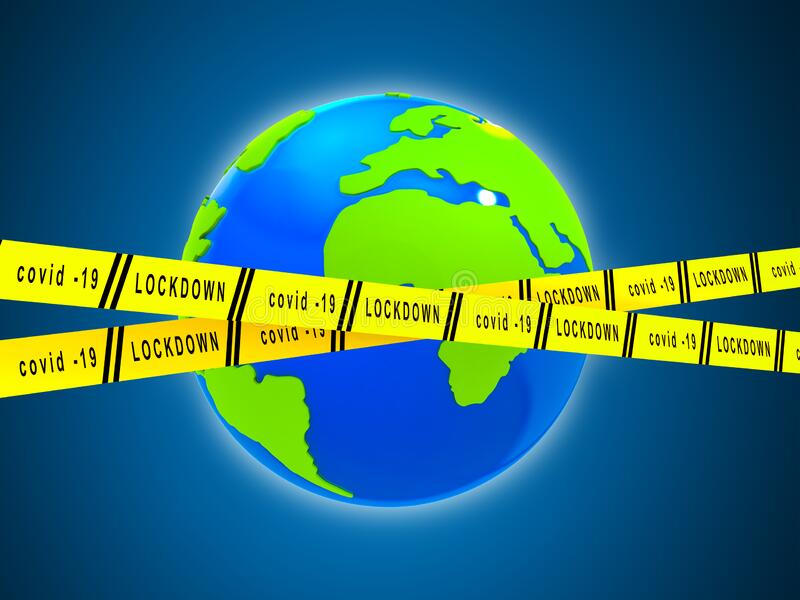
So, as early as April 2020, the scientific community knew, or knew enough, to not worry about Covid-19 and what it was capable of.
Why then, did they maintain the lockdown and vaccine policies when it appears they knew it eventually would be “nothing to worry about?”
We can err on the side of caution and give the benefit of the doubt, but how many months after this information came about, would it be acceptable to keep policies in place that according to the general consensus will be nothing more than a seasonal flu?
There are some very strange things going on, don’t you think?
Again, Klaus tells us:
“June 2020, roughly half a year after the beginning of the outbreak, our knowledge is still very patchy and as a result we still don’t really know just how dangerous COVID-19 is.”(40)
Yet, there is a growing consensus about its lethality, and Klaus tells us, with no knowledge, as far as we know, I might add,
Even in the worst-case horrendous scenario, COVID-19 will kill far fewer people than the Great Plagues, including the Black Deaths, or World War II did.”(17).
So, Klaus knows that Covid-19 won’t kill between, say, 40 to 200 million people. Given today’s population that is about .05 to 2.5% of the world population, but he quotes Anne Rimion, a professor of epidemiology,
“This is a novel virus, new to humanity, and nobody knows what will happen.”(40).
But Klaus knows, because on page 15 he stated,
“Whole populations will neither be exterminated nor displaced as a result of the pandemic.”
So which is it?
How can Klaus tell us with a conviction that COVID-19 won’t be that bad, yet he quotes people “in the know” that they don’t know how bad COVID-19 can, will, or potentially be?
This schizophrenic back and forth that Klaus does shows us one thing,
“for policy-makers and public officials, this prevailing level of uncertainty makes it very difficult to devise the right public-health strategy and the concomitant [concurrent] economic strategy.”(40).
No kidding.
What is interesting regarding Covid-19 is that it is
“a master of disguise that manifests itself with protean symptoms that are confounding the medical community.”(41)
I don’t think anyone can deny this is true and really the only way anyone can hope to get a handle on this is to come up with a bunch of scenarios(41).
Klaus gives us a brief rundown of what they are, based on a 2 year time-span.
Basically, however, COVID-19 manifests itself, we have
“at least another 18-24 months of significant COVID-19 activity, with hotspots popping up periodically in diverse geographic areas.”(42)
This seems to be pretty much correct as far as I can see, but Klaus tells us:
“a full-fledged economic recovery cannot take place until the virus is defeated or behind us.”(42)
Given that a pandemic can cause decades of after-effects, I don’t think he means full-fledged in the same sense as before, maybe full-fledged as much as possible?
We are again back to the “saving lives versus saving the economy — lives versus livelihoods”(42).
In my eyes this is more of control vs liberty argument because I don’t think any rational human being can honestly say going to work is more important than saving a life.
Granted, you need money to survive in today’s world.
Imagine if this was 1700, and you had to hunt for your dinner, yet your leader said:
“everyone must stay in their home because we have sickness.”
How long before everyone will leave their home and get food for their family, or kill the leader and then get food for their family?

Today is a vastly different world than 1700.
If all of your debt obligations were magically suspended and food could be delivered to your home without payment until the COVID-19 lockdowns were ended I don’t think there would be a big liberty vs control debate, but as we all know that never happened so people were right, at least in my eyes, to push back because this had a very real element of survival for many people.
This is the one thing, I think brought to the fore, and that is, low-income people, or poor people were affected by the lockdowns more than anyone else.

Everything is a trade-off, and everything has a consequence.
It’s obvious, but many people seem to be under the impression that many decisions can be made without even an acknowledgment that there could be a negative consequence, at least Klaus does, but they are all framed in economic issues which isn’t necessarily right, but it isn’t wrong either, it’s just a point of view.
To Klaus, the public health issue of COVID-19 justified the response:
“The logical conclusion of these two points [supply and demand side of economics] is this: governments must do whatever it takes and spend whatever it costs in the interests of our health and our collective wealth for the economy to recover sustainably. As both an economist and public-health specialist put it: ‘Only saving lives will save livelihoods’, making it clear that only policy measures that place people’s health at their core will enable an economic recovery adding ‘if governments fail to save lives, people afraid of the virus will not resume shopping, traveling, or dining out. This will hinder economic recovery, lockdown or no lockdowns.”(44)
However, we have seen nations and some states not resort to lockdowns and have done better than other nations.
If you don’t believe the premise, then I think you won’t believe the conclusion he comes to.
I think Klaus is incorrect when he said
“once people began to worry about the pandemic, they effectively started to ‘shutdown the economy’, even before the government had officially asked them to do so. A similar phenomenon took place after some American states decided to (partial) reopen: consumption remained subdued.”(44).
I don’t think it’s that simple.
Maybe with a very localized economy this could be true, but today, with supply chains that are thousands of miles long, I don’t think anyone understands how much of a behemoth the international economy is and with size comes inertia.
How long do you think it takes for something like a world-wide economic lockdown to ripple through the supply chain system?
Klaus has already told us we can see macro-economic issues for up to 40 years, so I would think an international supply chain abruptly stopping for a period of time, then ramping back up would take a while, counted in years, to get back to “normal”.
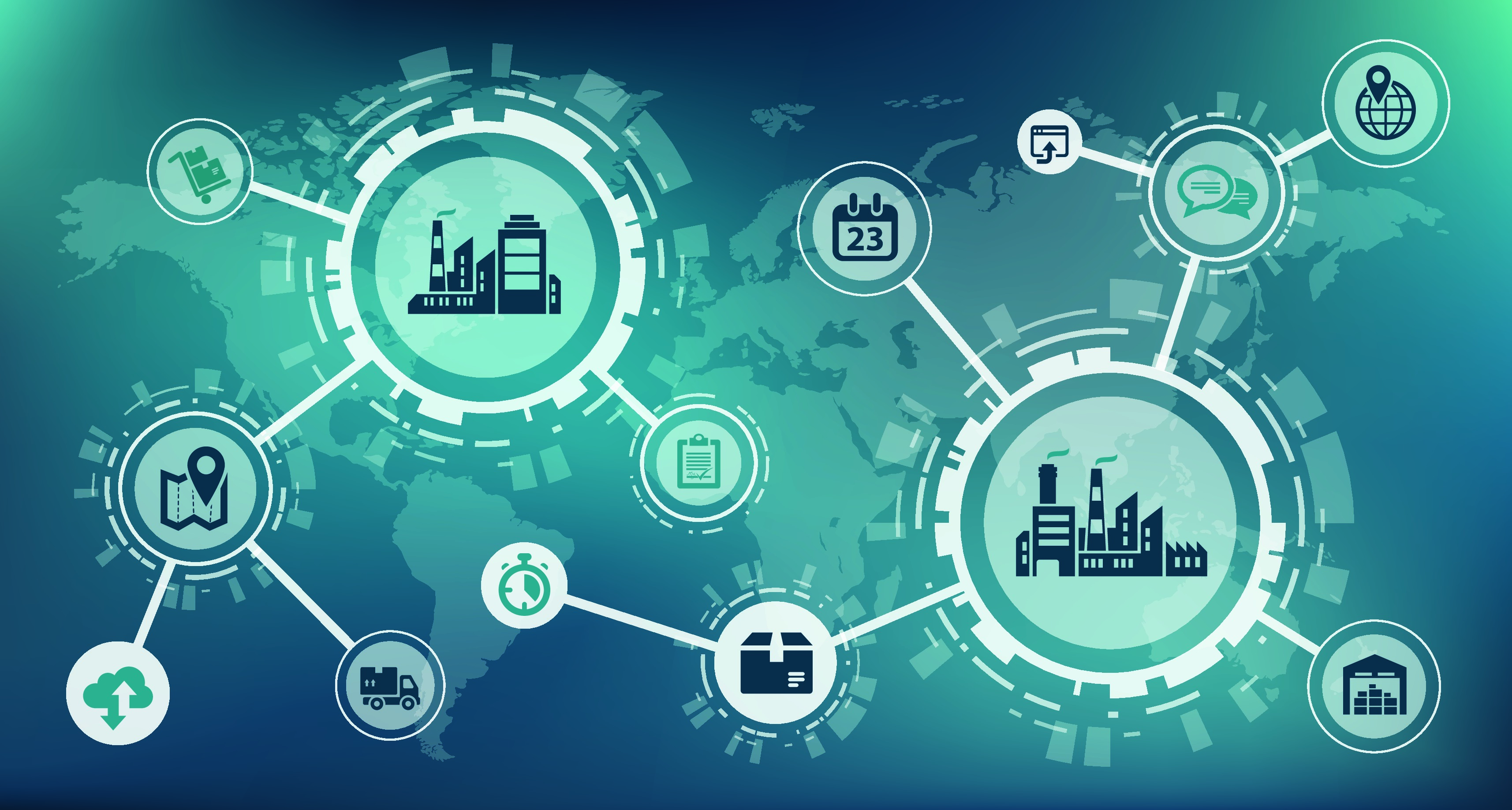
As of July 2022 there was $40 billion dollars of product waiting to get offloaded, and that’s just in the US.
Moving to public-health Klaus tells us that the
“economic and societal damage of a lockdown is glaringly obvious, while success in terms of containing the outbreak and preventing deaths - a prerequisite for a successful opening.”(45).
This is what’s known as a public-health paradox
“when you do it right, nothing happens”(45) this is why “delaying the lockdown or opening to early was always a such a strong policy temptation.”(45).
Klaus tells us that there are several studies that have shown there is an elevated risk if we do that.
He names the Imperial College of London study that
“wide-scale rigorous lockdowns imposed in March 2020 averted 3.1 million deaths in 11 European countries (including the UK, Spain, Italy, France, and Germany)”(45).
We all know now that this model was completely wrong.
Hindsight doesn’t help us in this instance, but given that the world basically locked down based on this kind of “evidence and analysis” wouldn’t it be a little prudent to do some fact checking about the person/group who is providing this information?
This is a little beyond the point of this article, but for those who are interested take a look at this site it outlines who Neil Ferguson is, he authored the debunked Imperial College Study on Covid, and his other predictions.
I think, if the ones making the decision to lockdown understood who was providing the information, it’s possible things would have been different, unless they decided it didn’t matter.
Which then brings up a whole host of other questions.
One thing is clear, the international supply chain is flawed, at least in my eyes, which is why
“… a fundamental shift in the way the world economy operates, marked by an abrupt and unsolicited return to a form of relative autarky, meaning self-sufficiency.”(47)
But the problem is most nations have outsourced so much of their manufacturing that self-reliance is untenable, not to mention the time it will take to “ramp up”. By the time a nation is ready COVID-19 will be long gone. Yet the service industry will be hardest hit and “lost revenues will be lost forever.”(48)
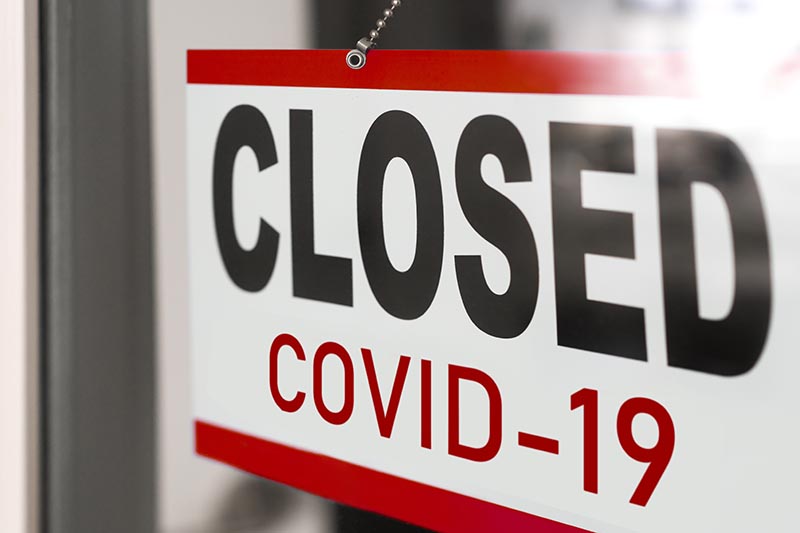
“Several months into a pandemic, it looks like even a semblance of a return to ‘business as usual’ for most service companies is inconceivable as long as COVID-19 remains a threat to our health. This in turn suggests that a full return to ‘normal’ cannot be envisaged before a vaccine is available.”(48)
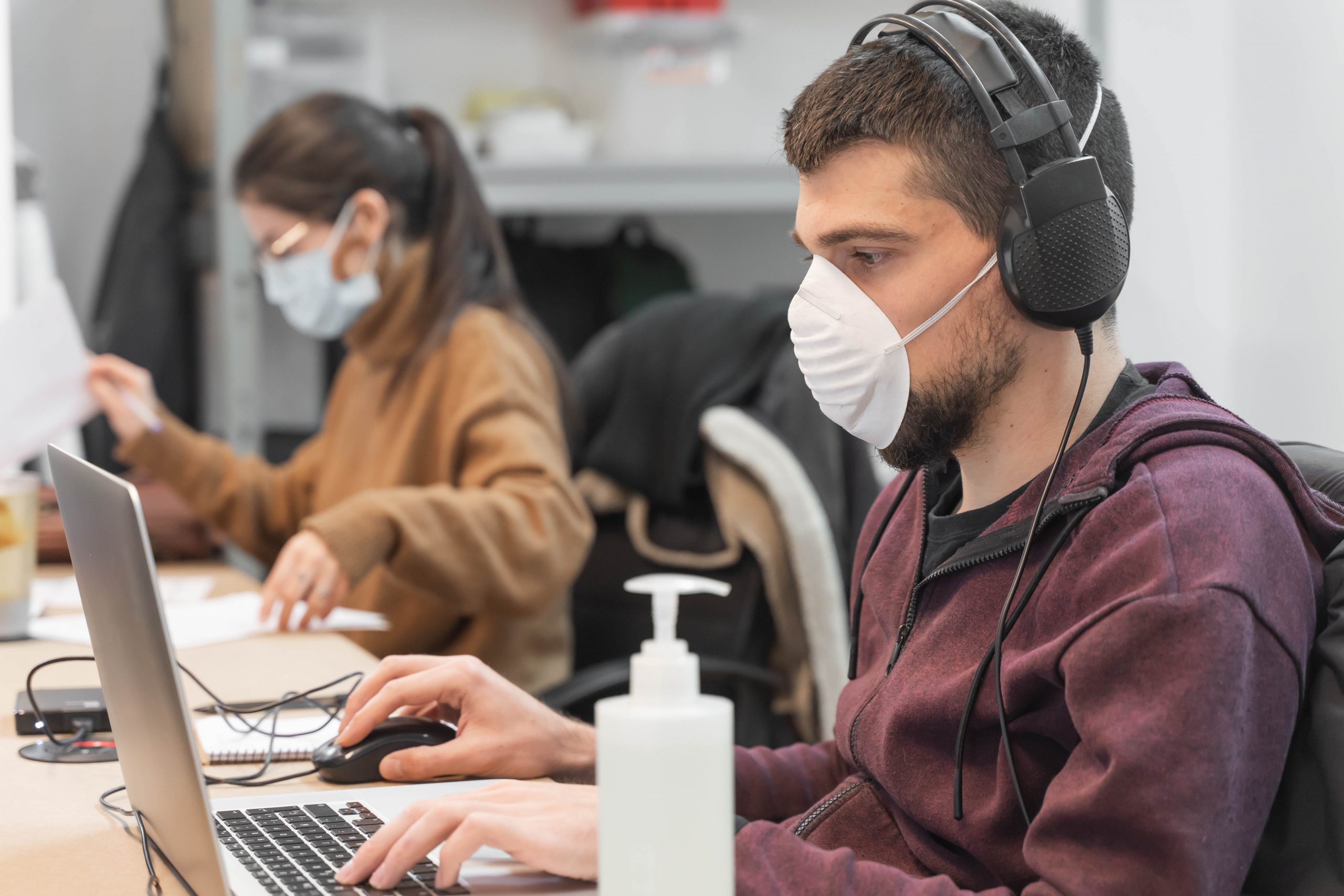
The problem, I have with this is very simply decisions are being made based on what appears to be a knee-jerk reaction to something that is worst-case scenario even when there are those who are advocating for the virus to infect people in a controlled way.
Which is it? Safe to get or life and death?
The rush to a vaccine should give everyone a moment of pause.
According to everyone in the know, a vaccine takes about 5-10 years to come to market, but with COVID-19
“according to experts”, it is unlikely to be the first quarter of 2021 at the earliest.
Covid is so life threatening that the drug manufacturers need to accelerate its manufacture in a matter of months as apposed to years.
Klaus himself tells us:
“In mid-June 2020, already more than 135 trials were underway, proceeding at a markable pace considering that in the past it could take up to 10 years to develop a vaccine (five in the case of Ebola), so the reason is not science but production.”(48)
It’s curious that Klaus seems to attribute a typical 10 year development cycle of a vaccine to production.
As we have seen, production isn’t the issue.

Pzifer stated their goal is “2.5 billion doses by the end of the year.”.
To me, if it takes 5-10 years to create a vaccine and it took substantially less time, either one of three scenarios must be true.
- “They” knew before hand, which reeks of conspiracy and completely unfounded to date.
- It was rushed.
- They had informaiton prior to the outbreak that allowed them to accelerate certain aspects of its developement.
Depending on how you interperet that last statement it could mean that COVID was developed in a lab, again, this is beyond the scope of this article.
To me it was a combination of the last two options.
No profit driven company is going to take 10 years to develop anything if they can get it to market faster.
On the Johns Hopkins website they tell very simply that for COVID-19 some clinical trials were combined and on the same site they tell us that with a “regular vaccine” each clinical trial phase has to finish before the next phase is started.
So, if combining clinical trial phases is considered acceptable, in the case of COVID-19, why can’t the Pzifer’s of the world just use the accelerated timeline going forward for all vaccines? If a vaccine is important, as we think most are, why should any population have to wait 5-10 years for a life saving vaccine when it’s clear it can be done in 12 months time?
Unless of course it’s not considered desirable.
But if it’s not considered desirable, why is it desireable during a pandemic?

One would think cutting corners is very obvious when a 10 year process is cut down to one.
If the integrity of the process can’t be maintained, isn’t the result suspect?
If the result is suspect, don’t we have a right to know that, or at least question the findings?
Or is it for our own good, and even if the rules weren’t followed or the process, or some of the numbers were fudged, it doesn’t matter because people were dying and the vaccine had to get out as fast as possible?
I’m not sure I find that a completely legitimate excuse.
Again, hindsight, but questions were raised as early as September 2020 and nothing of substance was done about it.
Anyway, the long and short of it, is that GDP will be affected to the tune of about -5%(51) which will obviously affect employment.
According to Klaus:
“The pandemic is confronting the economy with a labour market crisis of gigantic proportions.”(51)
He goes on to state:
“In just two months of March and April 2020, more than 36 million Americans lost their jobs, reversing 10 years of job gains.
In the US, like elsewhere, temporary dismissals caused by the initial lockdowns may become permanent, inflicting intense social pain (that only robust social safety nets can alleviate) and profound structural damage on countries’ economies.”(51)
He goes on to state that the official rate of unemployment could reach 25%(52)
Yes, things are bad, and luckily some nations have a social safety net.
This coupled with automation and AI that apparently:
“in all likelihood, the recession induced by the pandemic will trigger a sharp increase in labour-substitution, meaning that physical labour will be replaced by ‘robots’ and ‘intelligent’ machines.(55)

Could this be the impetuous for a universal basic income?
Because what is going to happen when:
“these innovations provoked by necessity (I.e sanitary measures) will soon result in hundreds of thousands, and potentially millions, of job losses”(55).
I guess with all of this idle time on people’s hands, the government needs to keep track of them in order to ensure they don’t get up to any funny business.
The hope Klaus tells of is of “new micro industries that will hopefully employ hundreds of millions of people.”(56)
Notice how he eludes to a smaller, less robust economy?
Not an industry, but a micro industry.
What exactly does that mean?
I would think that a micro industry would mean:
- less sales
- less product
- less service
- less everything
including money so how is this better?
Klaus tells us that in the post-pandemic
“the new economic ‘normal’ may be characterized by much lower growth than in past decades.”(57)
and because of this Klaus segues into wondering
“under such conditions, when lower economic growth seems almost certain, many people may wonder whether ‘obsessing’ about growth is even useful, concluding that it doesn’t make sense to chase a target of ever-higher GDP growth.”(57)
Again, it doesn’t jump out of the page, but he’s slowly advocating for a very different economy.
“Changing course will require a shift in the mindset of world leaders to place a greater focus and priority on the well-being of its citizens and the planet.”(58)

Much like a father to a child. I think Klaus makes a valid observation when he says that national statistics were
“amassed principally to furnish governments with a better understanding of the available resources for taxation and waging war.”(58)
He is obviously painting a picture, each section small and unassuming.
I don’t think many people would have a cogent argument against what he says, especially when he says
“policy-makers over-reliance on GDP as an indicator of economic prosperity has led to the current state of natural and social depletion.”(58)
How many people do you know that blame the government and the economy for everything? He’s feeding into an emotion that a lot people have, rightly or wrongly, but what does he do?
He doesn’t tell them they are wrong, he instead says it needs to be improved and asks what else should GDP cover?
He covers housework even though there is no way of measuring it currently. He even admits as much. The digital economy needs to be added, but then he hits us square on the head with Marx.
“Second, it is not only the overall size of the economy that matters but also the distribution of gains, and the progressive evolution of access to opportunity.”(59)
To be blunt, he says equality of outcome is what we should strive for.
Distribution of gains equals equality of outcome.
The progressive evolution of access to opportunity means equality of outcome, because you can’t evolve equality of opportunity into something more than it already is.
The only thing you can do is augment it to provide parameters, which means to exclude or include depending on your criteria, which is another way of saying equality of outcome.
His final element of “fixing” GDP is resiliency that
“will need to be better measured and monitored to gauge the true health of the economy.”(59)
To Klaus, it is only natural to bring in “public-private sector" data sources together.”(59)
Clearly, this is another way of saying, either a state-run or managed economy, which is the opposite of capitalism.
Klaus defends this, saying well-being budgets that deal with social issues have
“turned into policy what everyone has known for years, that an increase in GDP does not guarantee a living standard and social welfare.”(60)
I don’t think anyone has said that, nor implied that.
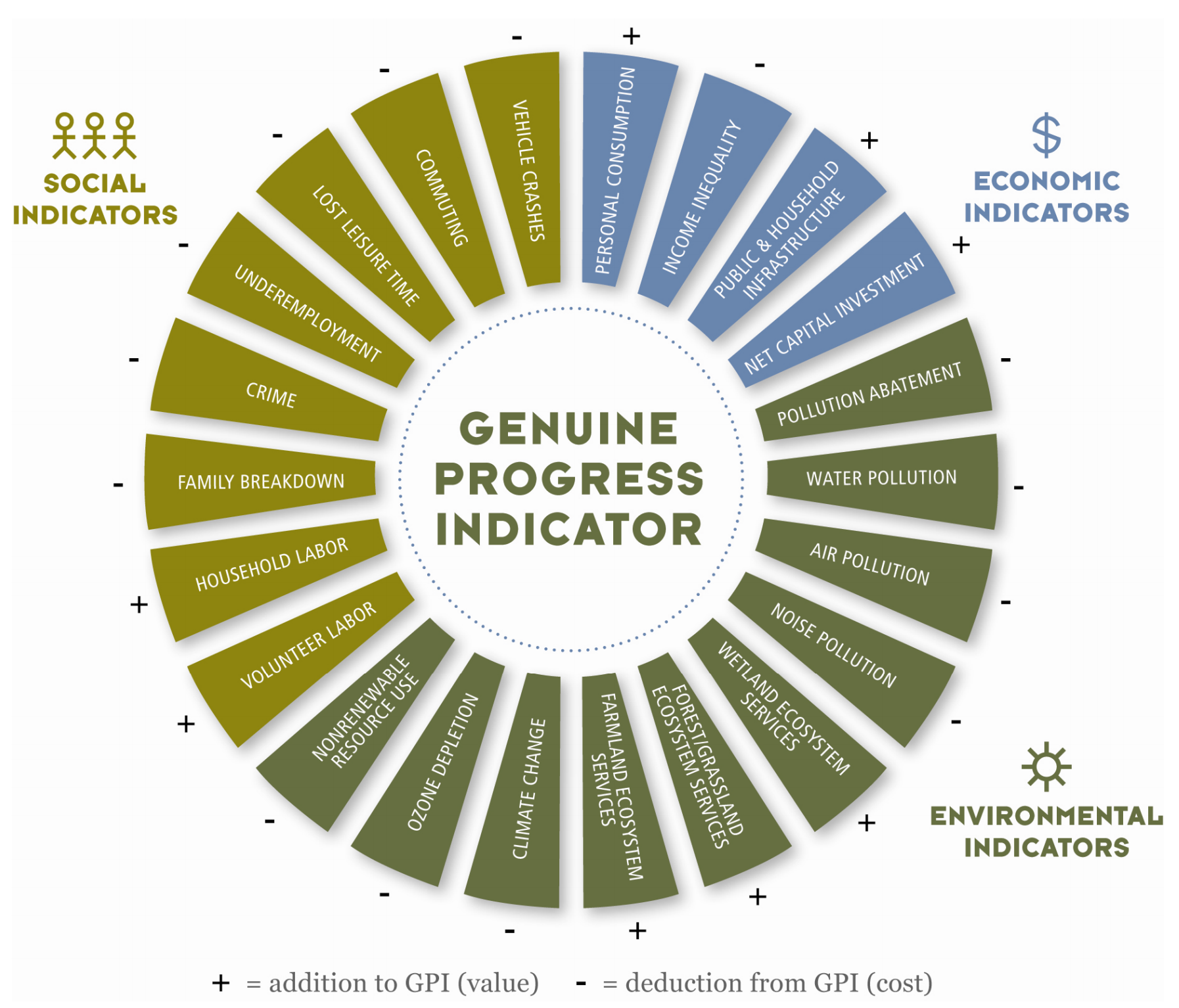
This is such a problem that in 1995, the GPI (genuine progress indicator) was created “by a socially responsible think tank called Redefining Progress.
The indicator was developed as an alternative to the traditional GDP measure of a nation’s economic and social health.”
Curious that Klaus doesn’t mention this, or, I highly doubt, know about this. It has variables such as:
personal consumption
income distribution
Housework, volunteering, and higher eduction
Long term environmental damage.
All of this and the variables he mentions can be found here.
So what is he getting at?
He’s presenting to us the concept of sustainable development.
Currently, regarding GDP, if you aren’t growing, you’re stagnating, and that’s bad.
We all know nothing can sustain unlimited growth, and maybe that is a problem in the west where we seem to live and die on GDP but organizations like the European Commission
“are reflecting on options that would sustain future economic activity at a level that matches the satisfaction of our material needs at the respect of our planetary boundaries.”(60)
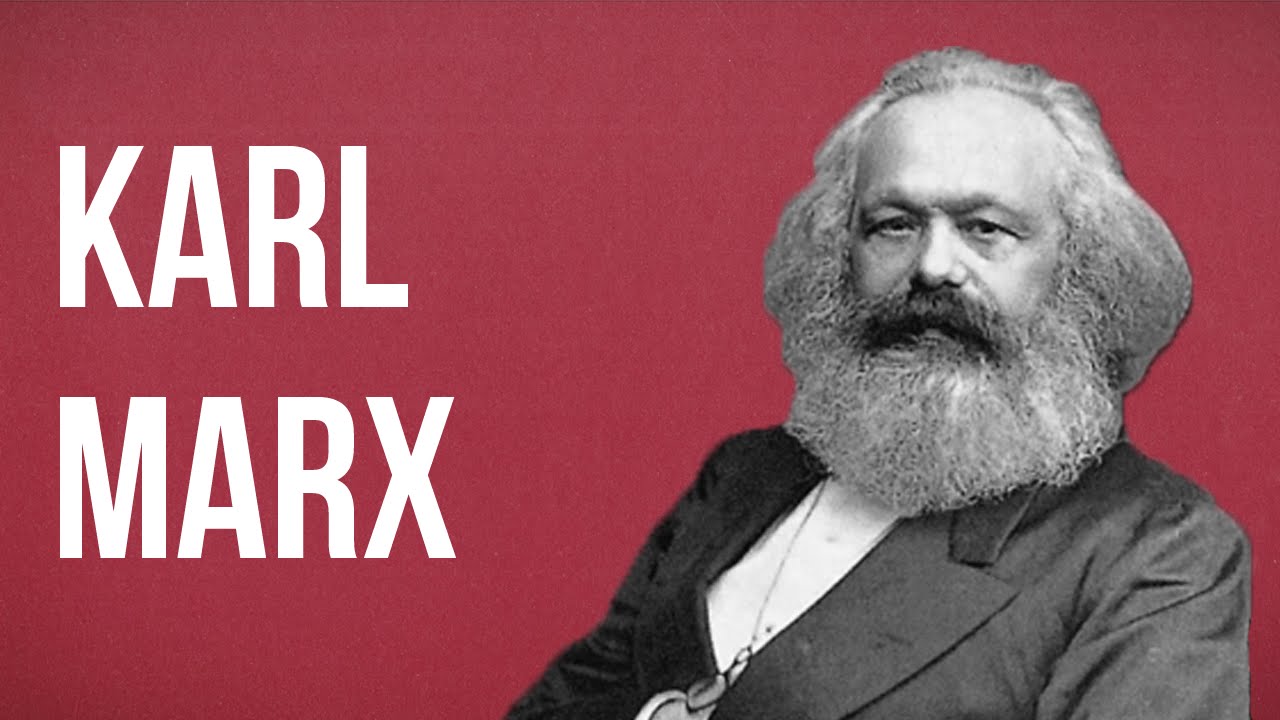
Put simply, he’s quoting Marx. ”It creates capital, i.e., that kind of property which exploits wage-labour, and which cannot increase except upon condition of begetting a new supply of wage-labour for fresh Exploitation”..
“Economic activity at a level that matches the satisfaction of our material needs” seems completely reasonable, doesn’t it.
He tells us that the city of Amsterdam has formally committed to this framework.
“The framework resembles a ‘doughnut’ in which the inner ring represents the minimum we need to lead a good life (as enunciated by the UN’s Sustainable Development Goals).”(60).
This is all a part of Agenda 2030 that you may have heard about.

Strange that he uses the doughnut analogy when we all know the there is no middle in a doughnut.
This all sounds great when you read it, but how is this going to be put into practice?
The troubling word for me is sustain.
When you think of that word, does your imagination immediately conjure up a picture of something overflowing, or at a maximum?
No, it is something that is:
- slower than it could be
- lower than it could be
- smaller than it could be.
Sustain seems to imply “forever”. We know nothing lasts forever, but we can make it last a lot longer if we use less and less
- less manufacturing
- less selling
- less buying, which dove-tails nicely into the WEF concept of you’ll own nothing and be happy.
Now the strange thing I find with all of these UN policies is they seem on some level to be co-ordinated with governments to do the exact opposite of what they are advocating. If you read the Sustainable Development Goals Report 2022 it states very clearly:
“The world is on the verge of a global food crisis, with a rising number of people experiencing hunger and food insecurity even before the COVID-19 pandemic. Global food supply systems have been partially undermined by a cascading combination of growing conflicts, climate-related shocks and widening inequalities. As a result, as many as 828 million people may have suffered from hunger in 2021. The outbreak of war in Ukraine poses an additional threat to food insecurity, with the potential to provoke a surge in levels of hunger and malnutrition, especially among the poorest and most vulnerable. With this global crisis looming, it is more urgent than ever to address its root causes. The international community must act now to avert a crippling food emergency and the social, economic and political upheaval that could follow.”
Why then, are laws being passed to reduce nitrogen based fertilizers that are the reason we have such an abundance of food in the world today?
The Colombo Declaration calls just for that. The UN even admits as much, and they are very aware that reducing nitrogen doesn’t relate to one of the goals of reducing hunger.(see the bottom of the website - Related Sustainable Development Goals)
I will however state that world hunger isn’t a production problem, it’s a distribution problem, and yes we waste a lot and over-produce but reducing nitrogen based fertilizers, seems like a very simple answer to a very complicated problem.
Do we even know or understand what a reduction of 30% nitrogen fertilizer will do
Using Klaus' terminology, in a non-linearity way?
Don’t you find it odd that Sri Lanka, where the Colombo Declaration was signed, is now rioting because of food shortages and so is Holland, another signatory
Canada in December 2020 unveiled a plan to reduce nitrogen by 30% as well.
In case anyone is wondering, the UN wants
“national roadmaps for sustainable nitrogen management, with an ambition to halve nitrogen waste by 2030”.
Simple math will tell you if we are over-producing currently to the tune of about 20% using our current levels of nitrogen fertilizer, a reduction of 50% means we will produce 60% of our current capacity, assuming nothing takes its place.

He have hunger now based on a distribution problem.
I think it’s obvious this will also create hunger due to a production problem. Both of those working in tandem will mean a lot of people are going to starve and ultimately die.
So who is the sustainability of the economy and planet really for?
It’s clear he doesn’t like GDP as a measure when he calls it the “tyranny of GDP growth”(61) but he does like that COVID-19
“may accelerate changes in many of our well-entrenched social norms.”(61)
This is a desirable result, just like Marx — It’s a PARADIGM SHIFT
He goes on to tell us, another tenant of communism, I might add,
“In addition, the growth that did materialize disproportionately accrued to individuals at the top end of the income distribution. A more effective approach may be or policy-makers to target welfare-enhancing interventions more directly.”(61)
Does this mean a universal basic income?
Only time will tell, but it is telling when Klaus tells us basically, that jobs
- in people management, like childcare
- care for the elderly
- health industry
this is what he calls the care economy, will create millions of jobs,
“and would lead to a rise of 2% GDP growth…””(62).
He does this to prove to us, even though he doesn’t like GDP as a measure, the care economy still creates a positive, even on GDP.
True, but what is the size of the economy that is increasing?
He conveniently leaves out what that number will be, but the article he sites states very plainly
“In a low-growth world, it is essential to share what growth there is more equitably.” obviously via higher taxes.
Degrowth to some is a logical outcropping of this, which is the reason why some people are advocating for things like less meat, etc.
Covid has renewed interest in this and this movement:
“wants to reverse the pace of economic growth, leading more than 1,100 experts from around the world to release a manifesto in May 2020 putting forward a degrowth strategy to tackle the economic and human crisis caused by COVID-19”(64)

When you read the degrowth open letter it sounds like a great thing. It talks about:
- insecurity
- lack of healthcare
- how people are starving
- how the capitalist economy doesn’t help them.
Even if this weren’t true, I am sure anyone could take a look around and see that something isn’t right when there are homeless, and people starving, yet there is abundance everywhere.
The problem, at least I can see it, is that the degrowth movmement is based on Communism.
You many not think this a big deal, but it is. Communism isn’t socialism — Marx even said that.
The open letter states the following:
Put life at the center of our economic systems
Radically reevaluate how much and what work is necessary for a good life for all.
Organize society around the provision of essential goods and services.
Democratize society
Base political and economic systems on the principle of solidarity.
All of those sound reasonable when you read them.
Who wouldn’t want to work less, and have a better work/life balance? I think everyone would.
The problem is this, it’s a top-down determination, ie a managed economy. That means someone somewhere is deciding on what is an essential service or good. What work is necessary, how much time off, workdays, etc. How much of a salary is considered acceptable, etc.
The authors of this open letter state that:
“… some sectors of the economy, like fossil fuel production, military and advertising, have to be phased out as fast as possible.”.
If there’s no competition, you don’t need advertising.
Military, and fossil fuel? I guess on some level they go hand in hand, but how do the authors expect the masses to be kept in line?
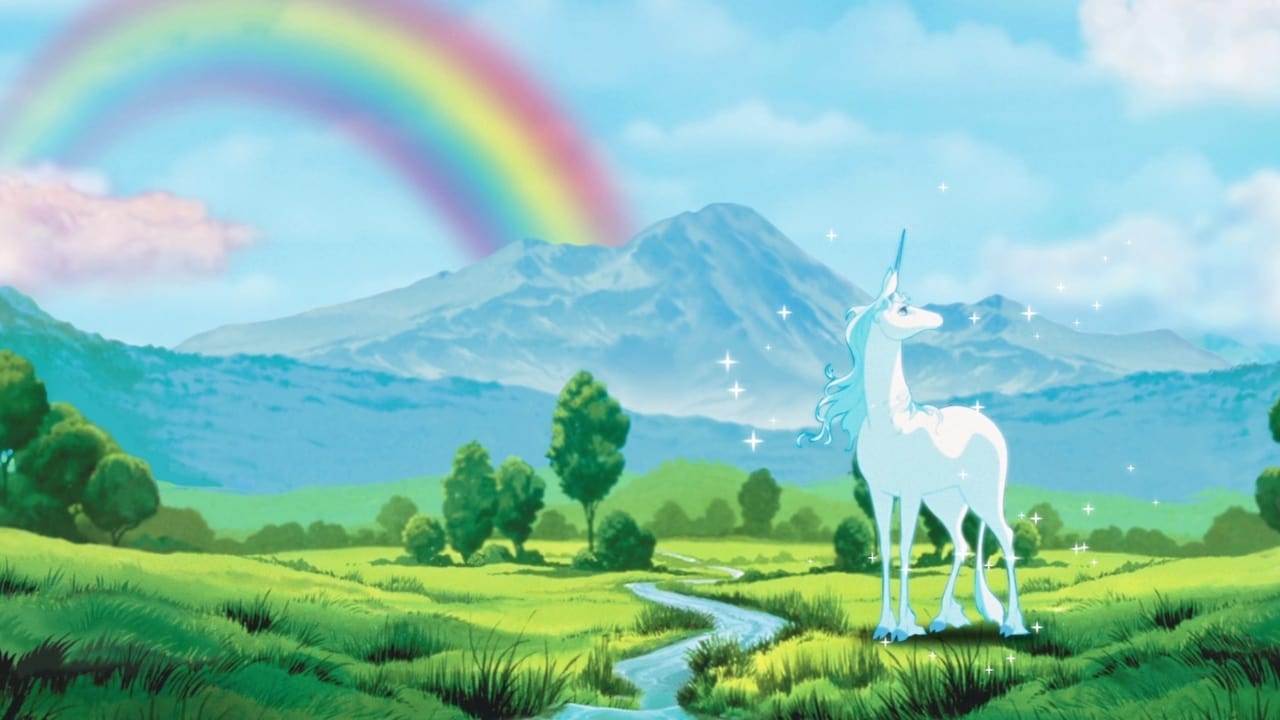
Or will they be so caught up with painting landscapes with unicorns and rainbows they won’t mind life as they know it will be radically changed?
There is more, but you get the point. The problem I have with people like this is that they think,
Utopia is around the corner.
People will somehow magically forget their wants, needs, and desires and accept what is given to them.
The only people who are thankful for what they are given, are those who rely on others for survival. This is exactly what is happening here. Forget about bettering anything, it won’t be allowed.
The other thing that amazes me, just like Marx, is they want to destroy society and replace it, yet they don’t provide a plan on how that is going to be accomplished, a perfect example:
“The sectors related to basic needs like energy, food, housing, health and education need to be decommodified and definancialised”. How is that going to work exactly?
Another one:
“Economic activity based on cooperation, for example worker cooperatives, has to be fostered.”

Another word for that is COLLECTIVIZATION.
This was already tried — it failed. Just ask any Ukrainian about the Holodomor, or pick up a history book and educate yourself.
How anyone thinks this is a good idea, hasn’t read a history book, or is purposely ignorant of the past.
It’s clear this is a march towards reseting the economy and society. Everyone advocating for this — be careful what you wish for, you may just get it.
Basically, Klaus believes we can get to a future “where we live better with less.”(64).
To Klaus:
“there is no fundamental trade-off between economic, social, and environmental factors if we adopt this more holistic and longer-term approach to defining progress and incentivizing investment in green and social frontier markets.”(64)
If there is no trade-off, and it appears to better overall, why does Klaus think we aren’t doing it?
Apparently, it will even raise GDP and help all of those social factors he spoke about.
I suspect because there will be trade-offs.
There has to be something like an economy can’t change drastically and have the output basically be the same.
Turning to fiscal and monetary policy, Klaus tells us:
“in systemically important countries [primarily western nations] central banks decided almost immediately… to cut interest rates while launching large quantitative-easing programs…”(65).
Yes, you have to do that when you decide to shut your economy down and people still need to eat and pay their bills, not to mention the massive amount of money used to “fight the pandemic”. It has to come from somewhere to the tune of 11 trillion.
This is all justified because:
“these are unprecedented programmes for an unprecedented situation, something so new that the economist Carmen Reinhart has called it a ‘whatever-it-takes’ moment for large-scale, outside-the-box fiscal and monetary policies.”(67)
I suppose if governments actually followed through with their emergency response plans instead of leaving them on the sidelines and letting medical professionals manage the pandemic then this wouldn’t be necessary because everyone would still be working and only those who are sick would be quarantined, not everyone all the time.
Klaus seems to think that the situation we’re in will alter the rules of the economic and fiscal policy game. According to Klaus:
“central bankers are becoming (to a relative degree) subservient to elected politicians.”(67).
I bet most of you thought central banks were under governments, but now you’ve heard from Klaus himself, they’ve been above them from day one.
To Klaus, this can lead to uncontrollable inflation when governments try to:
“intervene to preserve workers’ jobs or incomes and protect companies from bankruptcy may endure after these policies come to an end.”(67)
So inflation is bad, when governments try to help workers and for social reasons? Isn’t that what every government had done for the last 2 years, practically stop the economy but to keep it going they’ve all printed and enormous amount of money?
Yet, governments can bailout banks and corporations and that’s okay.
All one has to do is read about Germany in WWI or Zimbabwe to know about the actual effects of inflation if not kept in check, which is why inflation is something everyone needs to keep an eye on.

This can still pose a potential problem of Japanification, which is:
“… a hopeless combination of no growth, no inflation, and insufferable debt levels.”(71)
But it shouldn’t be a cause for concern, at least that’s what Klaus tells us.
While COVID-19 was going on the US still had the privilege of beginning the reserve currency of the world, but:
“for quite some time, some analysts and policy-makers have been considering a possible and progressive end to the dominance of the dollar. They now think that the pandemic might be the catalyst that proves them right.”(72-73).
We all know what this means, a march toward digital currency, which Klaus tells us the euro, renimbi could be a contender for a reserve currency, but unlikely.
He then tells us there is no global digital currency, and everyone is working on one, but China has already tested their’s in April 2020
“the country is years ahead of the rest of the world in developing digital currency combined with a powerful electronic payment platforms…”(74)
The other thing they are years ahead of is a social credit system.
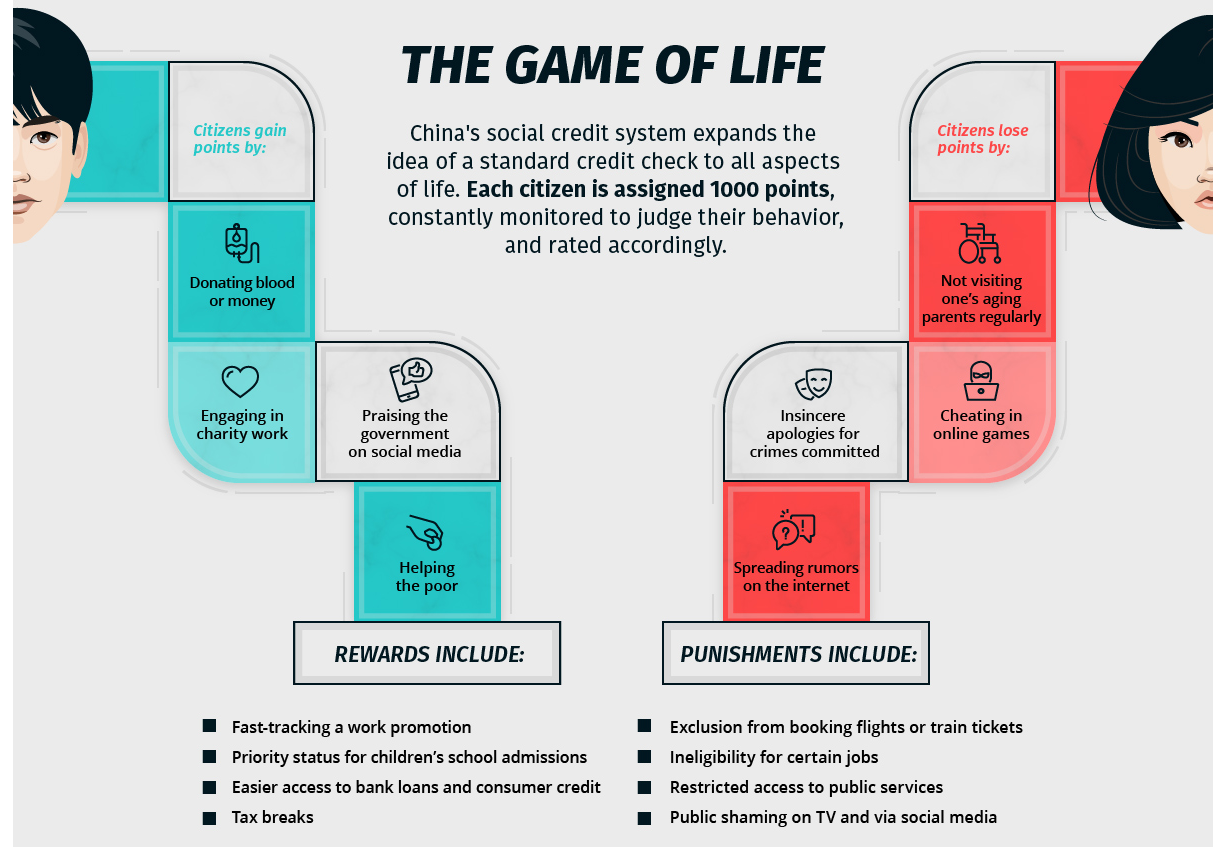
Effectively digitizing the currency means the underground economy stops, and a complete transaction history is all ripe for surveillance, which is whatKlaussaid he wanted on page 11, remember?
In the end, Klaus feels covid may change the way we interact on a global level, the damage of the economy has created a lot of social and humanitarian pain(75)
To Klaus this is
“a stark reminder of the extent to which economic risks intersect with societal issues and geopolitics.”(75).
